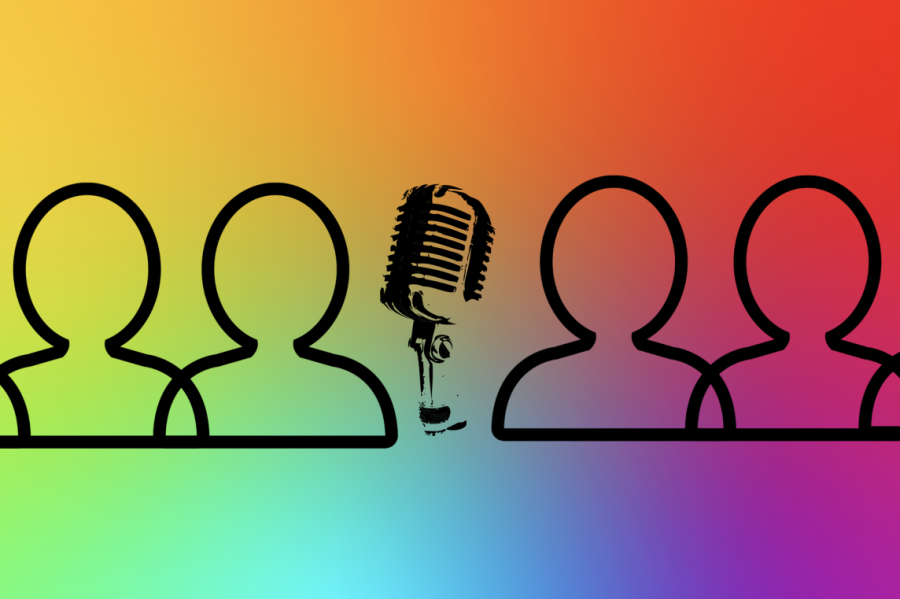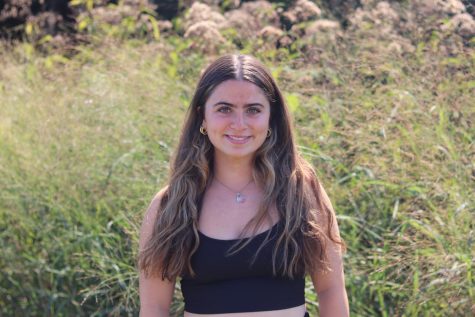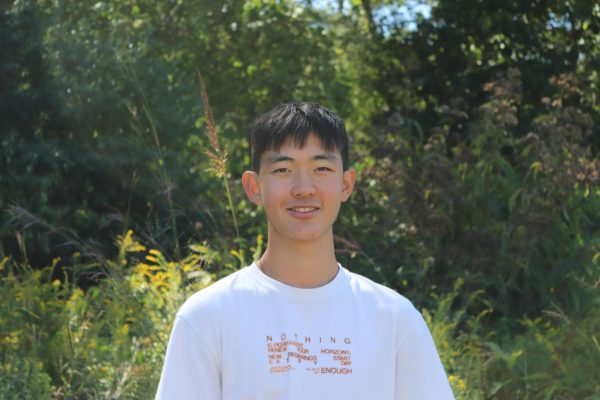Anonymous-Ask panel in the spotlight during Winter Week
February 15, 2023
The Anonymous-Ask Panel took place on Friday, Feb 3 at Wayland High School for the 2nd time in WHS history. Organized by Teacher Hayes and led by senior Kris Poole-Evans and sophomore Jared Lappin, the panel was an interactive Q&A for students to learn about gender and sexuality.
“Our goal was to answer the questions that are often brushed over or not even talked about in health class surrounding queer sex ed,” Poole-Evans said. “When people see the word sex, they tend to get embarrassed and in turn don’t take anything seriously, which is a shame.”
Students were able to ask anything they wanted to through the website bit.ly/AskAnon2023. Many of the questions were about gender and race issues, as well as questions about the personal experiences of the panelists. Poole-Evans noted being anonymous comes with advantages and disadvantages.
“During our live question segment at the end, a lot of [people] decided it would be funny to ask a bunch of inappropriate questions, or just straight up type slurs and submit them,” Poole-Evans said. “It’s not only disrespectful to the panelists who took time out of their day to be here, but also extremely rude to the alliance as a whole.”
Throughout the event, the panelists offered detailed answers about what they thought and felt about gender and race. First, the panelists were asked about when they thought pronouns should be used and what neopronouns were. The panelists were quick to respond and explained that pronouns should be used for safety reasons. They also explained that neopronouns were pronouns other than she,he and they.
The panelists also went into more detail about the differences between being transgender and being non-binary. They also explained how bisexuality and pansexuality are different in that being bisexual meant that you were attracted to two or more genders while being pansexual meant that you were attracted to all people no matter the gender.
Later, the panelists shared their own experiences of how their sexuality affected them in school or work. One mentioned how it took work to go into a new job when using different pronouns than what people expect. One panelist detailed how it was annoying to have to remind people of pronouns. While talking about their experiences growing up, a panelist said
“Growing up black and queer is as hard as you would think,” a panelist said. “As long as you are yourself your friends will come and your community will come.”
Adding to the discussion, one panelist said that they found it annoying to constantly remind people of pronouns while another said that many people will support you.
Towards the end of the show, the panelists talked about discovering yourself and the importance of labels. They added that sexuality could change as you grow up as well as how you feel and identify. The panelists also said that defining a man/woman can be anything and gender doesn’t equal sex. The panelists also shared the different ways they show affection in public and how their sexuality affects the way they show affection.
Finally, to close the show, the panel shared resources to learn about sex ed, whether it be visiting your pediatrician or visiting a hospital website, such as Boston Children’s Hospital.
“What mattered the most to me was that the alliance students had a good time,” Poole-Evans said. “Outside of that, I really don’t care who enjoyed the panel.”





![Last Wednesday, the Wayland School Committee gathered to discuss a number of topics regarding the health curriculum and Innovation Career Pathway course. Another large topic of conversation was the ways to potentially mitigate distracting cell phone usage. "These [phones] are going to distract your learning and social relationships," Superintendent David Fleishman said. "That's concrete right there."](https://waylandstudentpress.com/wp-content/uploads/2025/06/Screenshot-2025-06-04-at-9.49.31 PM-1200x886.png)



























![Troy Hoyt finishes the Boston Marathon, running for the Hoyt Foundation. T. Hoyt is the son of Hoyt Foundation CEO Russ Hoyt.
“[Running a marathon] might seem like a big thing, when it’s presented to you at first, but if you break it up and just keep telling yourself, “Yes, you can,” you can start chipping away at it. And before you know it, you’ll be running the whole 26 miles, and you won’t even think twice about it.” T. Hoyt said.](https://waylandstudentpress.com/wp-content/uploads/2025/04/C36E8761-1CBB-452E-9DF2-543EF7B1095E_1_105_c.jpeg)














































